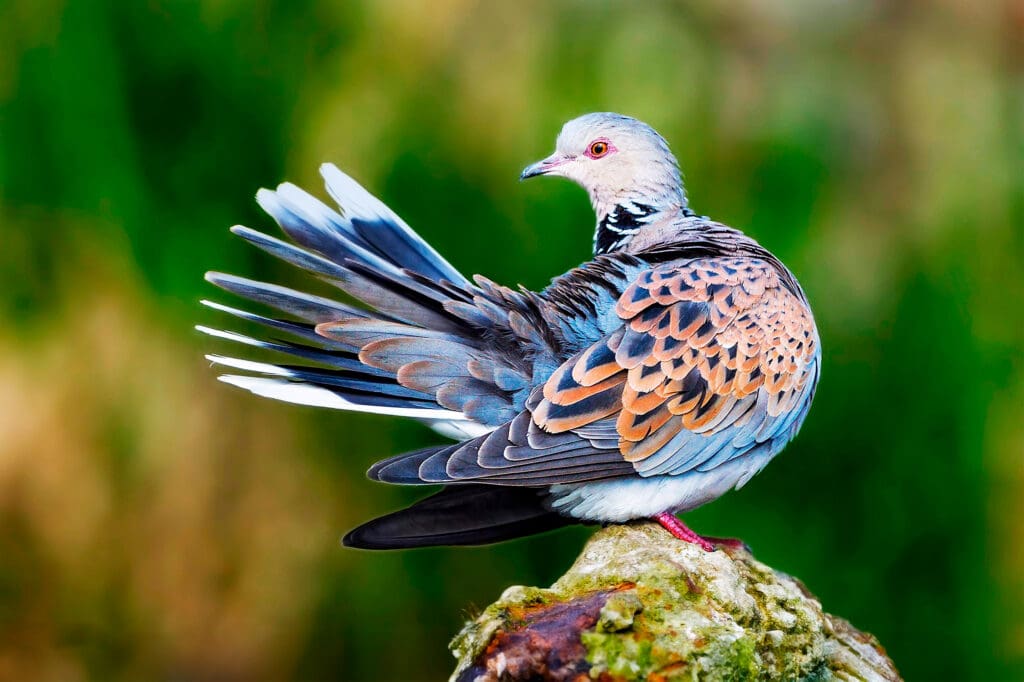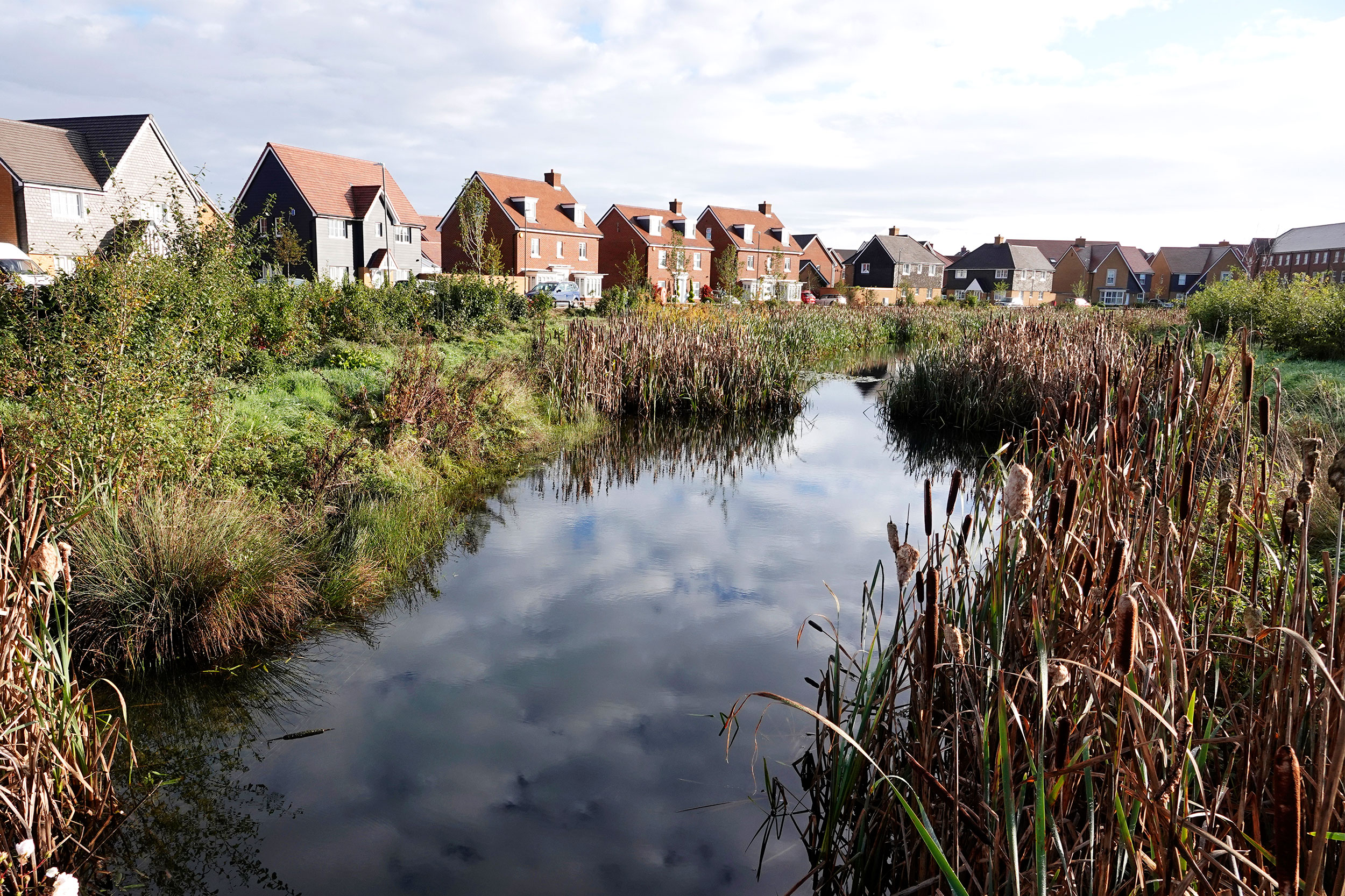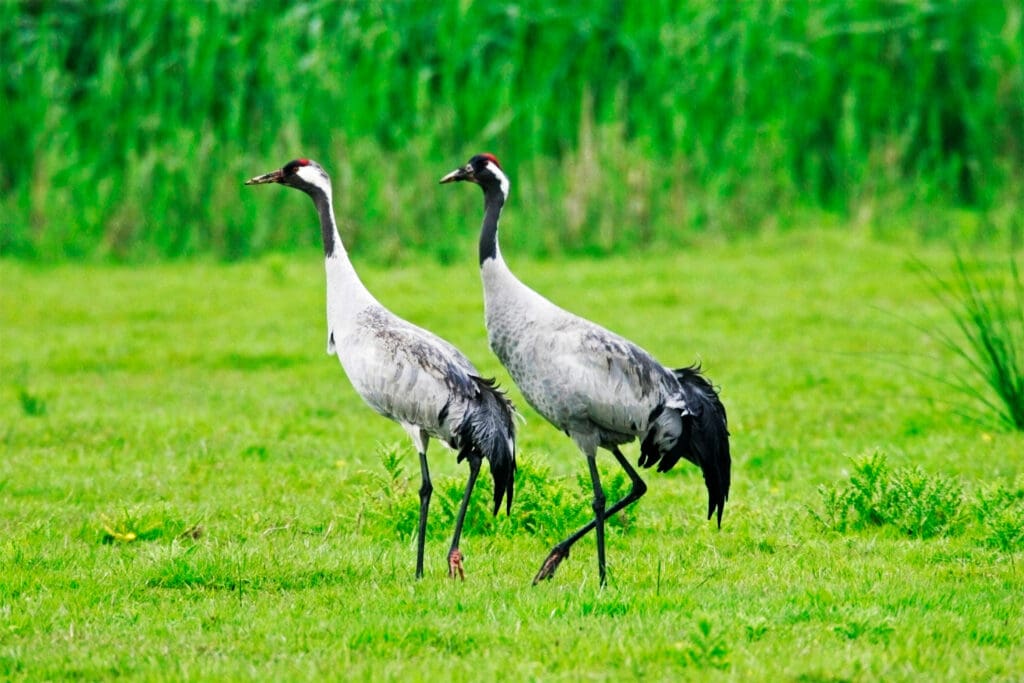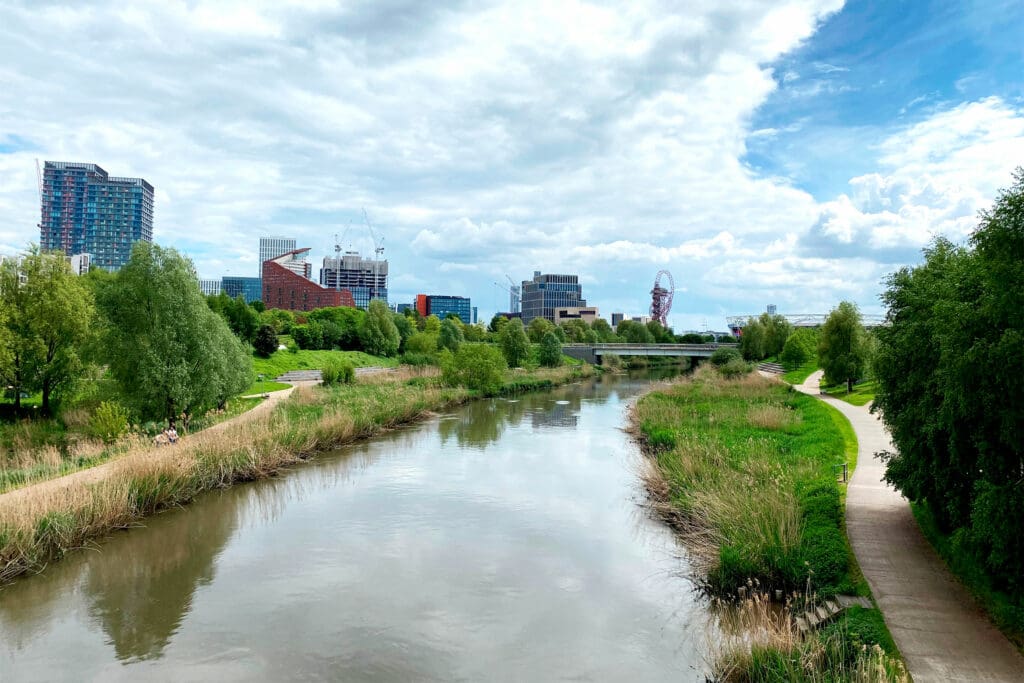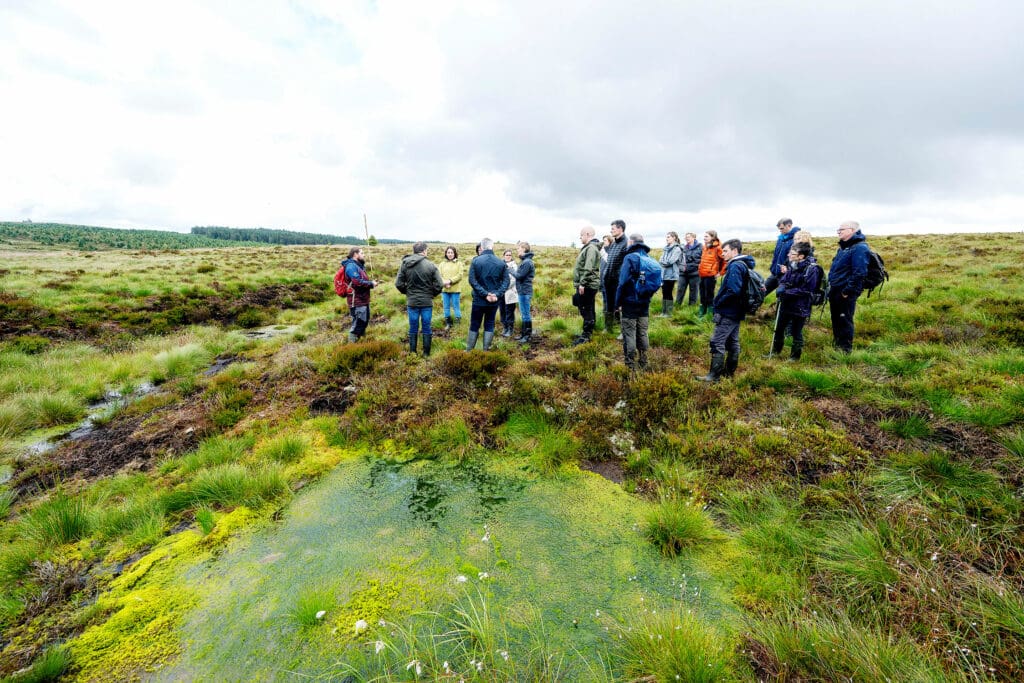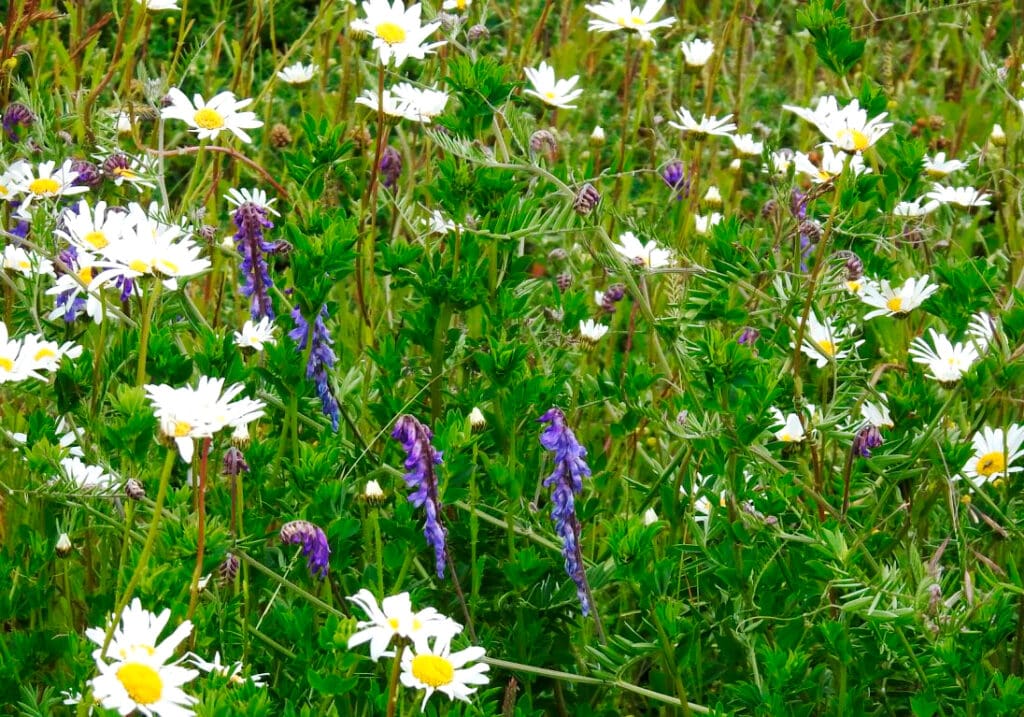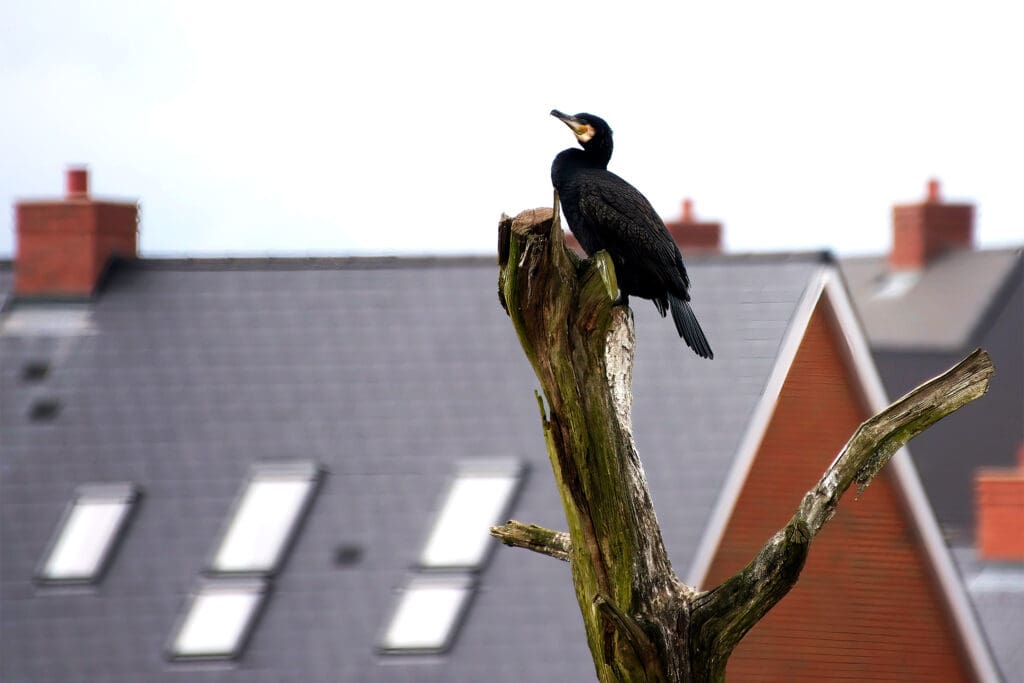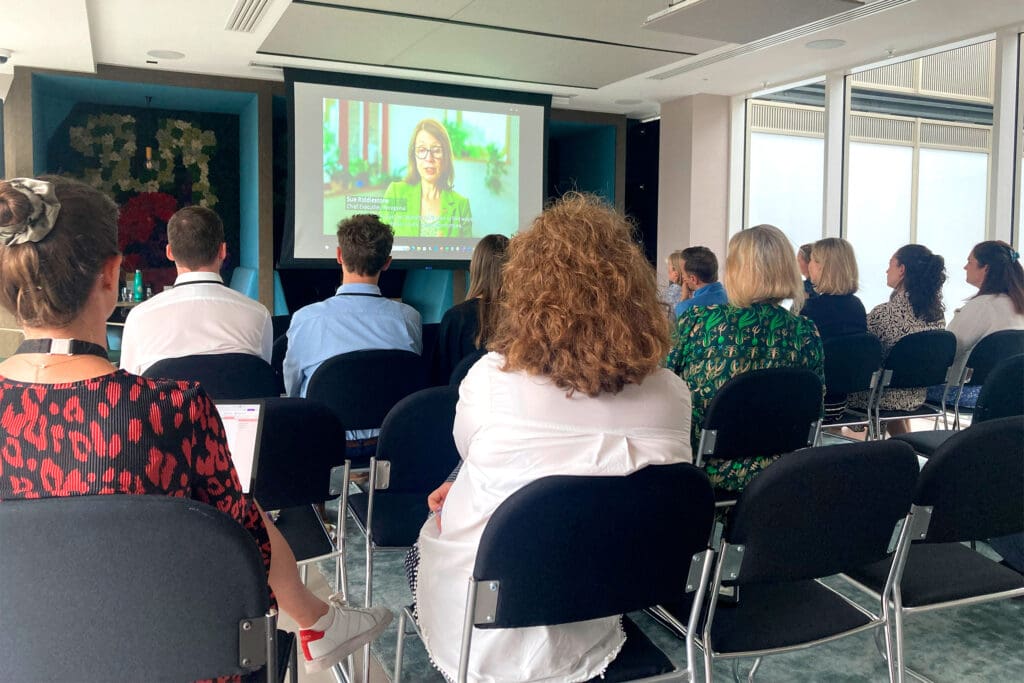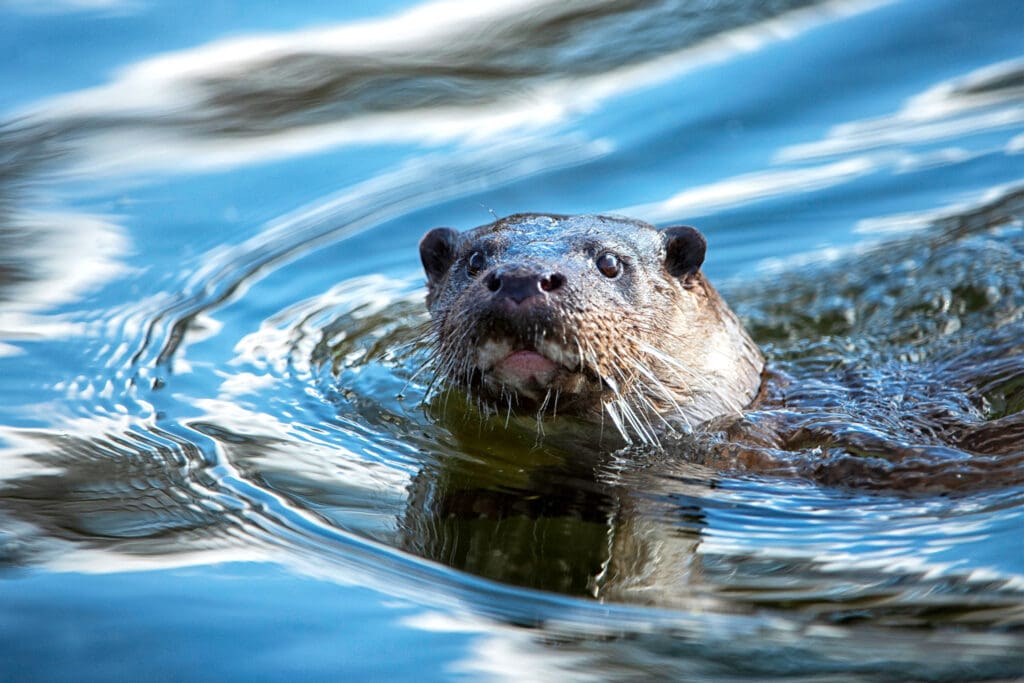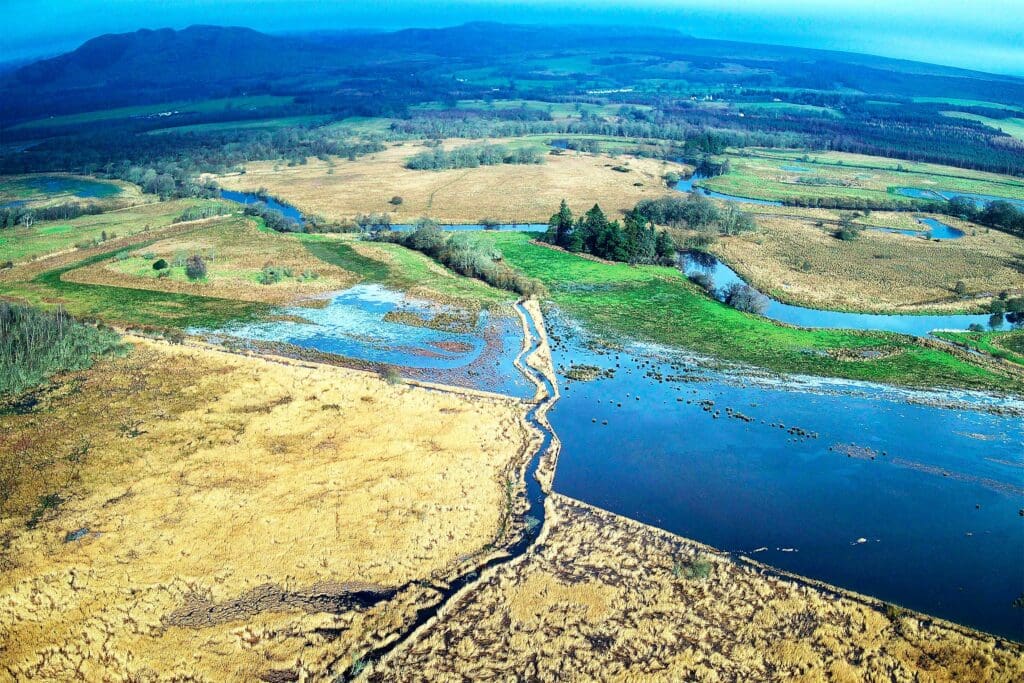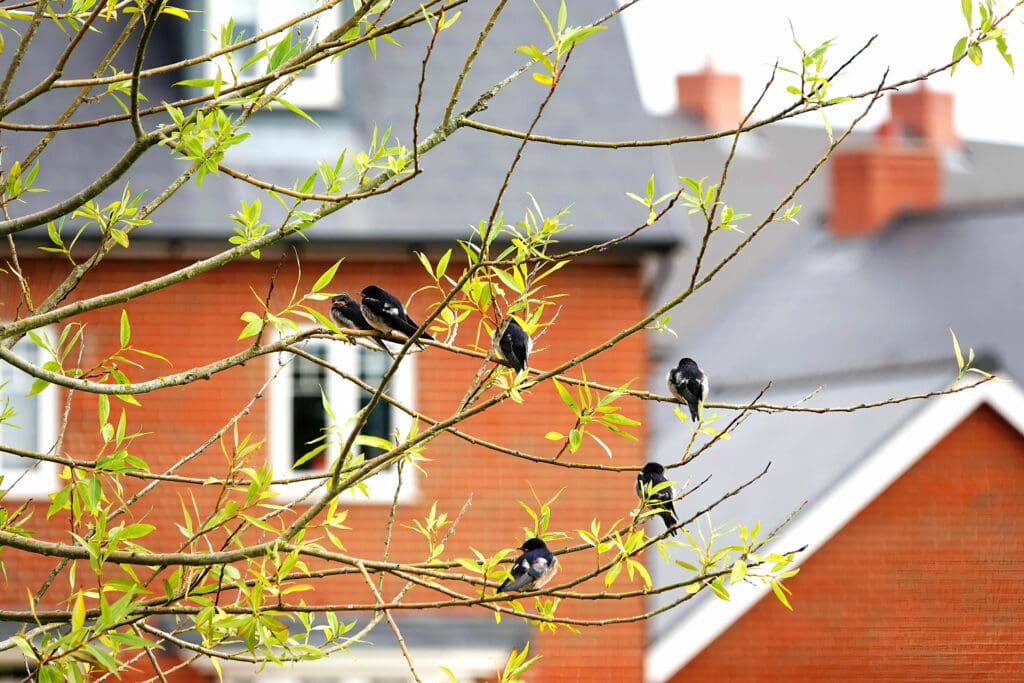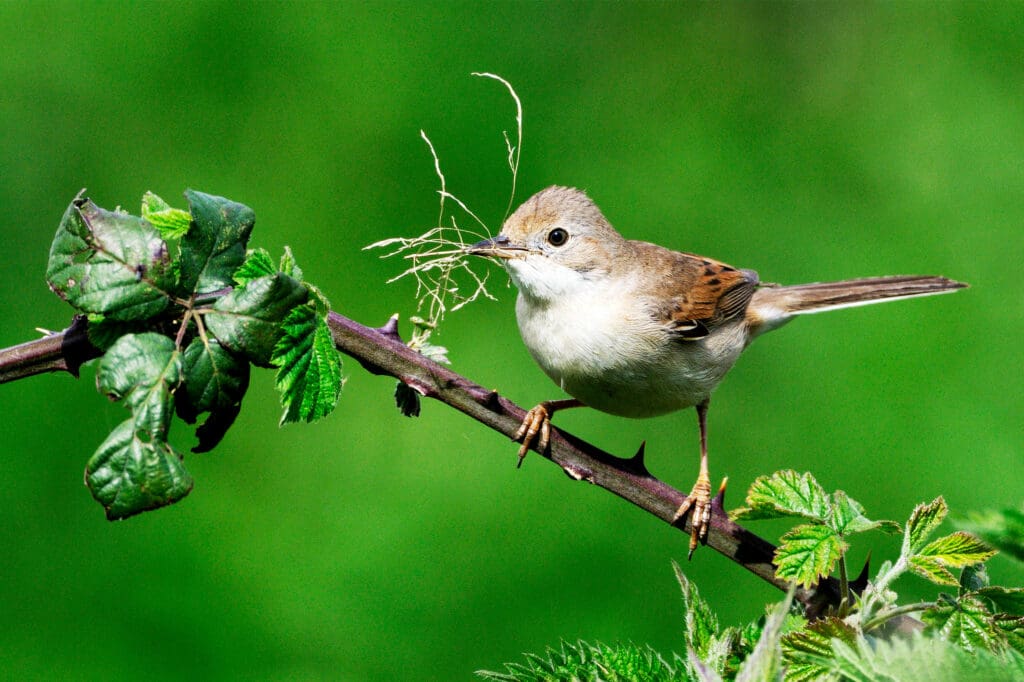Vicki Boyton leaves her house accompanied by Blackbird song cascading from a nearby Bird Cherry. House Sparrows chatter in the hedgerow as she walks towards the lakes. It’s a lovely, and perhaps unexpected, experience on a new-build housing development. This has all been possible at Kingsbrook in Aylesbury, where Vicki lives, thanks to a pioneering partnership between the RSPB and Barratt Developments PLC.
It’s not just housebuilding that the RSPB aims to make more nature-friendly. Across the UK, and globally, the charity works with industries as varied as fishing, mining, recreation, retail and tourism.
Why work with businesses?
In the past, industrialisation has caused biodiversity decline and decimation of wild habitats. So the list of sectors above may seem surprising. The RSPB needs to be vocal about the changes that are needed to protect and restore nature. But as well as lobbying those in power, the charity also needs to be working alongside people, building trusted relationships and sharing the wealth of expertise it holds. It is members’ support that helps the RSPB to build these relationships.
“Businesses are a core part of the solution,” explains Kim Dunn, RSPB Senior Policy Officer. She adds that there are 5.59 million registered businesses in the UK. “Imagine what it would be like if each one embedded nature into the heart of their decision-making and committed to restore what we have lost,” says Kim.
Businesses can play a powerful role in bringing back nature. With access to some of the best minds, funding and technology, they are often able to act swiftly and independently, leading rather than waiting for others to act. But, Kim adds, the level of understanding amongst business leaders and employees needs to increase, rapidly.
Katie Wakefield, the RSPB’s Head of Business Engagement, says, “It’s important to recognise that businesses are at different stages in their journeys with nature. We need them to commit to contributing to a Nature Positive future in which people and the planet thrive. Where we are satisfied that they are committed to being on this journey with us and have ambitious plans for the future, it’s important for the RSPB to help those businesses succeed, not just for us but for the incredible nature and communities around us.”
It’s worth remembering that companies are made up of people too, and often when the RSPB is talking to businesses, enthusiasm for wildlife is already there
How does this help business?
Nature isn’t just something that’s nice to have or to look at. Every business is either wholly or partly dependent on healthy, functioning ecosystems. When things go wrong, business is impacted. For example, flooding, drought and insect loss all have negative effects on business, from crop failures, property damage and loss of income. On the other hand, resilient, healthy nature can protect people and livelihoods from the early effects of climate change. Nature can ensure stable supply chains and boost the health and wellbeing of employees.
Taking action for nature offers companies an opportunity. Nature is our greatest ally in the fight against climate change, helping us to store carbon, regulate water and manage air temperatures. It is also an economic opportunity. The World Economic Forum estimates that 395 million jobs are dependent on nature, and with every £1 million invested in nature’s recovery, an additional 40 jobs are created.
Governments look to businesses to help them meet their environmental commitments, such as the Kunming-Montreal Global Biodiversity Framework. This was signed by 196 countries who pledged to protect and restore 30% of our land and seas by 2030.
And customers increasingly expect businesses to have a position on the nature crisis. Research from the RSPB’s Fair to Nature food certification scheme shows that over two thirds of the UK’s adults want to support nature-friendly businesses. So do employees, who want to know if corporate values match their own.
People power
It’s worth remembering that companies are made up of people too, and often when the RSPB is talking to businesses, enthusiasm for wildlife is already there.
Chris Jenkins is Head of Impact at kids’ food brand Ella’s Kitchen, a recent corporate partner for the RSPB. Creating a nature-connected business culture is a priority for Ella’s Kitchen, and for Chris.
A particular bird inspired Chris’ passion for conservation. “I was born in May 1984, around the time Peregrine Falcons first successfully bred in Symonds Yat, Herefordshire. The RSPB set up a 24-hour surveillance to prevent egg theft. Peregrines have nested there ever since, throughout my life.”
Chris continues, “Ella’s Kitchen relies on nature; we couldn’t exist without it. I want to ensure that when my children are grown up, and maybe have children of their own, that nature is in a better state than it is today – and those Peregrines are still there! For this to happen, we need businesses to step up. We must work together to create the change we need to save nature.”
By engaging with businesses, the RSPB is also reaching people whom they may not otherwise. Graham Edgell at UK construction and regeneration group Morgan Sindall Group believes that as their RSPB partnership work energises his company’s staff and their families, many more people will feel they’re helping to make things better.
Businesses are often seen as the villain of this story, but we need to see them as our allies
Restoring landscapes
The RSPB works with businesses in several different ways. There are corporate partners who give the charity financial support, often funding large conservation projects. These include Co-op, who began a three-year partnership with the RSPB in 2023. The retailer’s initial £1 million investment, raised through the sale of its compostable carrier bags, will enable the ongoing restoration and long-term management of precious peatland at RSPB Lake Vyrnwy in Powys and RSPB Yell in Shetland.
Guy Stuart, Director of Sustainability, Technical and Agriculture at Co-op, explains the thinking behind the project: “This partnership will play a part in helping to avoid carbon emissions through repairing vital peatlands. This will increase carbon stores and support our work to prioritise action where we are able to make the most impact.”
The RSPB and Ella’s Kitchen recently launched the ‘30 by 30’ partnership. This aims to protect and restore 30 million square feet of wildflower and grassland meadows on nine RSPB sites by 2030. These include Otmoor in Oxford, Dolydd Llyn in North Wales and Loch Lomond in West Dunbartonshire.
Another long-term landscape-scale project has been transforming a vast sand and gravel quarry in Cambridgeshire. Since 2001, Heidelberg Materials UK have worked with the RSPB to transform their site into the Ouse Fen Wetlands. This reserve – home to Otters, Bitterns, Bearded Tits, and Marsh Harriers – will hold the biggest reedbed (460ha) in the UK. The site helps local people too, as part of a flood alleviation system.
Not far away, at RSPB Lakenheath Fen in Suffolk, Morgan Sindall Group has helped the site to expand, which will, over time, enable more wetland habitat to be created for wildlife, including Cranes, and help to reduce carbon emissions in the area.
Listen to interviews with some of those involved in the business partnerships. In this video: Vicki Boyton; Graham Edgell, Group Director of Procurement and Sustainability at Morgan Sindall Group; Chris Jenkins, Head of Impact at Ella’s Kitchen; Eris Robertson. Video: RSPB
Advice and advocacy
The RSPB’s conservation experts help people work in a way that enhances the natural environment and creates habitat for wildlife. This includes the long-term partnership with Barratt Developments where the RSPB has been guiding the company’s practices to be more nature friendly, from the flagship Kingsbrook development to a new Swift brick and wildlife-friendly show gardens around the UK.
Helen Nyul, Group Head of Biodiversity at Barratt says, “Our work with the RSPB helps us bring in new ideas for ways we can make our business go beyond just meeting compliance and help include spaces for wildlife in our developments too.”
The RSPB has also supported idverde, a landscape management company, in transforming 2,281ha into wildlife-friendly green space. Chief Executive Kristian Lennard recently commented, “Working alongside our RSPB colleagues is both a pleasure and an invaluable lesson in how to better manage our ecosystems.”
By the end of 2023, the charity passed the major landmark of 10,000ha of land well-managed for nature with its business partners, including Queen Elizabeth Olympic Park in east London, working with idverde, and Lightrock Power’s Longpasture solar farm in Darlington.
The RSPB is also reaching new corporate audiences through film. Along with WWF, National Trust and Silverback Films, the charity has produced four Save Our Wild Isles business videos. These use incredible footage from last year’s Wild Isles TV series, along with interviews from leading business thinkers. The films have so far been shown to over 25,000 employees at a variety of businesses, prompting conversations around how their companies can aid nature’s recovery.
Hope for nature
Back at Kingsbrook, spring is well on its way, bringing hope and new life. Those chirping House Sparrows are doing well: over five years their numbers have increased from two to 147 pairs. There are twice as many Starlings and bumblebees, and there has been an increase in Reed Buntings, Sedge Warblers and Common Whitethroats. Bats have been seen swooping around the houses and will hopefully make use of the built-in bat boxes. A human community is building there too, with schoolchildren planting trees and bulbs.
Eris Robertson and his partner Jon both live and work on the development. They love watching wildlife in their garden with their two children. “I’ve seen butterflies here that I’ve never seen before,” Eris says.
As Vicki Boyton says, housing is going to be built anyway, but by working with businesses, charities have “an opportunity to direct the conversation”.
Kim Dunn agrees: “Businesses are often seen as the villain of this story, but we need to see them as our allies and bring them on this journey with us.”
Nature is vital for business. And, given the chance, business can be vital for nature.
Listen to this feature here:

Three things you can ask as an employee
- How does your company impact nature?
- Does your company have a nature strategy?
- Does your company have a green team?
- Get your workplace involved in screening the Save our Wild Isles films for businesses.
There are other ways you can take action to save nature, click the link below to find out more.
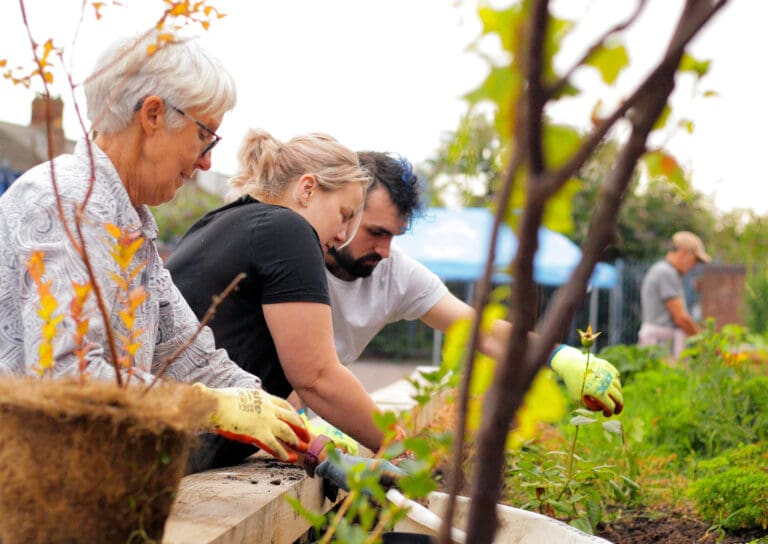
You might also like
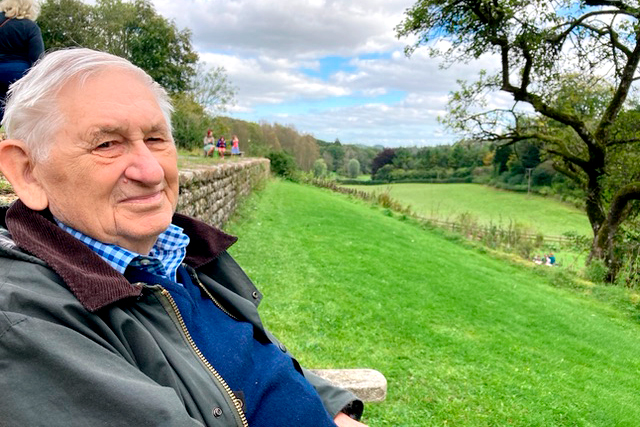
Committed to Conservation

A voice for nature
